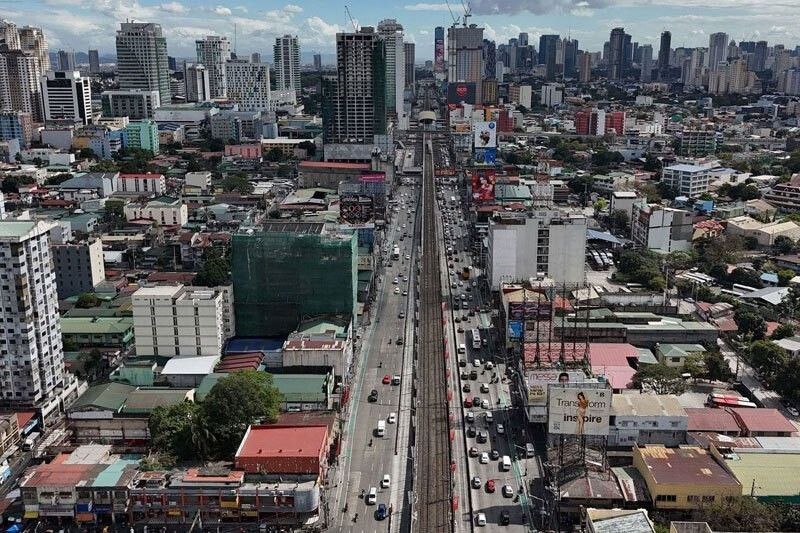
Upgrade to High-Speed Internet for only ₱1499/month!
Enjoy up to 100 Mbps fiber broadband, perfect for browsing, streaming, and gaming.
Visit Suniway.ph to learn
EJ Macababbad - The Philippine Star
July 13, 2025 | 12:00am
MANILA, Philippines — Revitalizing the local textile industry goes beyond fashion and aesthetics, officials emphasized, as the Department of Science and Technology (DOST) inaugurated the Philippine Handloom Weaving Center last week.
Sen. Loren Legarda lamented during her remarks that her bill promoting the industry’s development has not received enough attention.
“Not everyone really understands,” Legarda said. “They might think it’s a fashion thing, which definitely it is not.”
“I keep on saying it goes beyond everyday wear; it’s the livelihood of the farmers,” she added.
Senate Bill 241, or the Philippine Handloom Weaving Industry Development Act of 2022, was filed in the early days of the 19th Congress, only to languish in the committee level since then. Legarda said she plans to refile it in the new Congress.
The bill aims to establish the National Handloom Weaving Council to maximize the economic benefits of weaving, with a representative from the DOST-Philippine Textile Research Institute (PTRI) serving as chair.
A similar measure was filed in the House in 2023 by former Abra representative Ching Bernos.
Exports of apparel and clothing accessories declined by 6.1 percent in 2024 compared to the previous year, according to the Philippine Statistics Authority, generating $662 million in income and ranking 17th among commodity groups.
“We are not only breathing life into our weaving industry, we also continue to provide a lifeline to our weavers and our farmers,” Legarda said. “We will give hope to the communities that are tirelessly weaving into our culture; the hands that continue to weave, not only fabric, but also stories of our past.”
To create more livelihood opportunities for Filipino weavers, the PTRI has launched the Philippine Handloom Weaving Center, located inside the DOST complex in Taguig. The center will showcase PTRI’s patented technologies aimed at modernizing weaving, including HL Mach 4.0 and Thera Loom V2.
HL Mach 4.0, or the modified handloom weaving machine design, is more ergonomic and productive than traditional upright looms. Ten units of this innovation are already at the center.
Meanwhile, the Thera Loom V2, or the Therapeutic Handloom Weaving Machines version 2, is a 25-inch handloom machine designed for persons with disability and senior citizens. Two units are already at the center.
The center will play host to various weaving initiatives spearheaded by the 24 regional handloom weaving innovation hubs nationwide.
“This is the nexus of the tireless efforts borne through countless years, decades even, of the intricate work done by PTRI in going to the weaving communities around the Philippines,” Science Secretary Renato Solidum Jr. said.
“Listening to their stories, observing and familiarizing themselves with their heritage and culture, and faithfully channeling through science, technology and innovation their shared experiences toward preserving and revitalizing handloom weaving as a tradition and as a bulwark of innovation,” he added.
PTRI’s innovations have uplifted indigenous tribes reliant on weaving for their livelihood.
One in particular is the Buhids of San Jose, Occidental Mindoro, who received five handlooms from PTRI worth P32 million. These units have revitalized the youth’s interest in weaving traditional garments such as abol (shawl) and ramit (skirt).
“We requested these machines so we can pass on our tradition to the youth,” Rosita Montajes, leader of the Samahan ng mga Kababaihang Buhid Para Sa Gawaing Kamay, told The STAR.
Push for ‘Blue Economy’ law
Meanwhile, Legarda and Sen. Risa Hontiveros vowed to pass the proposed “Blue Economy Act,” which mandates the sustainable use of the country’s marine and coastal resources.
Both senators cited the urgency of the bill and hoped it would be a priority legislation at the 20th Congress.
Legarda, the bill’s principal author, called on President Marcos to mention it in his upcoming State of the Nation Address.
“I’m hopeful that some of the key measures we’ve already filed – like the proposed Blue Economy Act – will be recognized as national priorities. This bill will use our rich marine resources to drive inclusive economic growth, but it does so while protecting the environment and strengthening our coastal communities’ resilience,” she said.
“The Blue Economy Act is not just about economic growth; it is about ensuring the long-term health of our oceans, which are vital for our survival and prosperity,” Legarda said.
She said the bill is needed to safeguard marine ecosystems and secure sustainable livelihoods for coastal communities. — Marc Jayson Cayabyab

 22 hours ago
4
22 hours ago
4



